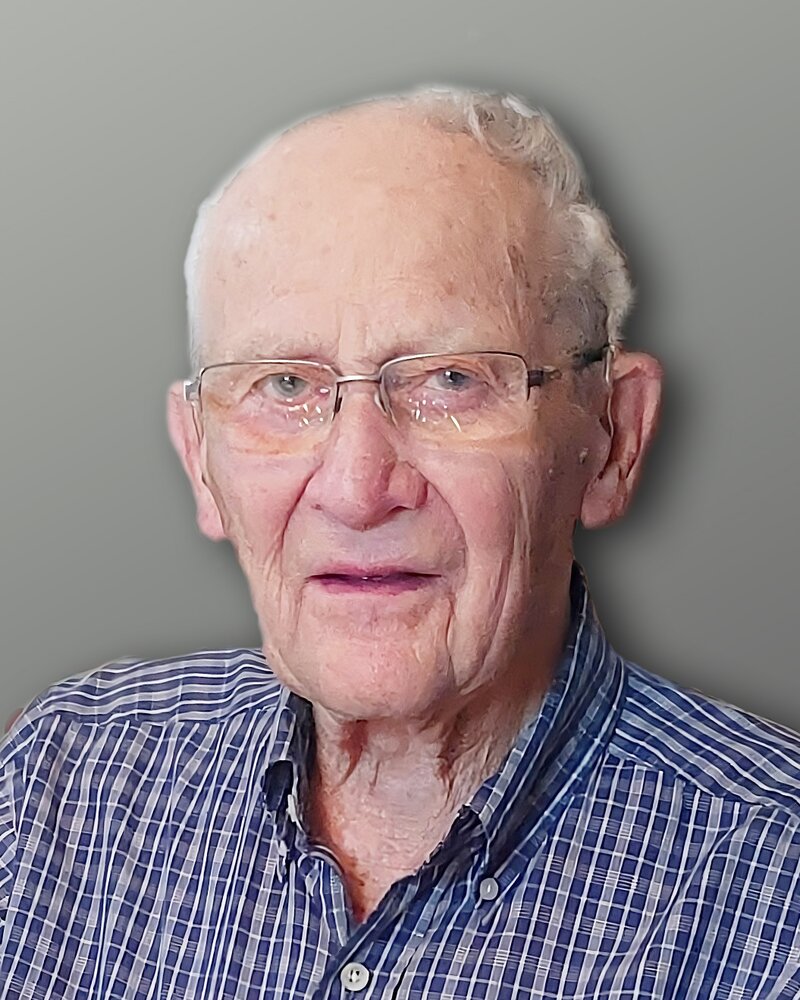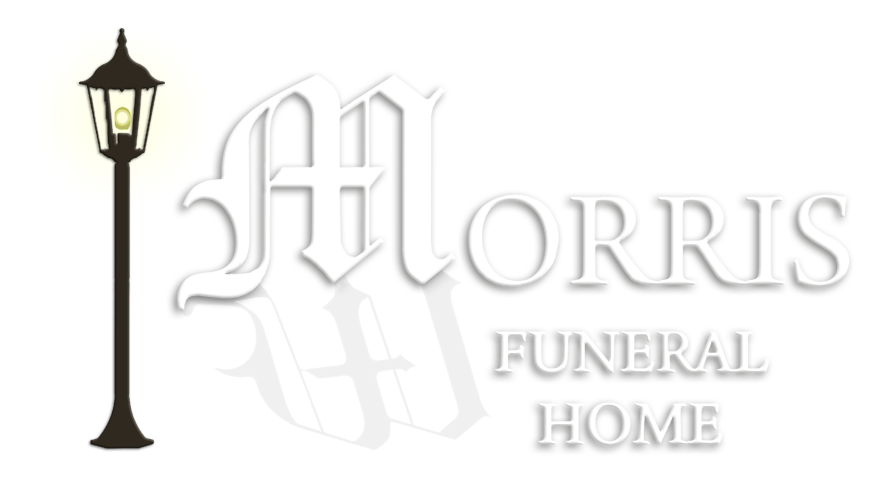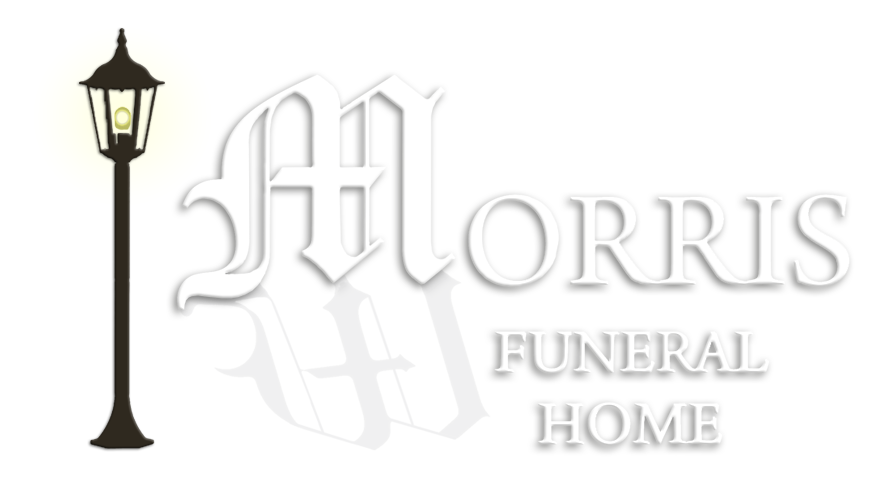
Obituary
Obituary of Edward Penner
While on his 100th trip around the sun, after a 36,331 day journey, Dad received his ultimate promotion. He died as he had lived; quietly and at peace, an example to us all. Family, friends, neighbours, choir members, students, relatives, fellow churchgoers, and others that we will only learn of in eternity have memories of their time travelling with him. These are some of ours:
His story started in the middle of a warm and sunny week. His mother had to walk to the field being harvested to tell his father, “It is time”. If he had written his father's diary that day in the manner Dad wrote every day for more than 80 years, it would have been something like this:
“Wednesday, September 17. Another clear, unseasonably warm day with a high close to 80. SE wind all day, so expecting significant moisture in a couple of days. Repaired the threshing machine and got going before noon. Wheat yield about 25, with good quality. Had a son. Erdmund.”
He changed his name to Edward as soon as possible.
Rose Farm school only offered Grade 8, but Dad continued his education via correspondence and completed Grade 10, a rarity in the community. Dad was a lifelong student. He read copiously, and challenging words were highlighted, with Webster’s definition written in the margin. Reviews of books and articles were written on the fly leafs. He actually read the dictionary and encyclopedia.
As a child of parents who became Christians well into their married life, being saved was not assumed. Dad made a conscious decision to follow Christ and was baptized at 19. This was a pivotal change in the family trajectory and we are the beneficiaries. Dad read his Bible morning and evening and listed at least 65 years in which he read through the entire Scripture. He would have liked to be a teacher, but as the only son of a farmer, that was not an option. Perhaps that is why all his children have taught in some capacity. He taught Sunday School most of his adult life. And yes, records of every Sunday’s lesson, attendance, and memory work were kept for the rest of his life. Every lesson was meticulously prepared and delivered. His own children were expected to bring home school reports unspoiled by letters like B or C. Dad was left handed, but was forced to use the right hand in school, although whenever he did diagrams or sketching, he reverted to his left hand. Perhaps this was why he was always apologetic about his poor handwriting and printed everything. Later in life, when his dexterity diminished, he switched back to printing with his left hand.
World War II forced a difficult decision. While many of the neighbour boys said whatever was necessary to claim conscientious objector status, Dad answered the judge’s questions truthfully. He served his time in a Saskatchewan coal mine - first as a labourer and then in the kitchen.
Ed’s passions for education, music, organization, and neatness collided with the rough and tumble Brown crowd when he, at the age of 22, married Hannah on July 13, 1947. Their vows of “for richer or poorer” were tested immediately as their wedding presents were lost in a fire which destroyed the Isaac Brown home after the wedding. 5 children were born over a period of 20 years starting in 1949 with Ken, followed by Carole, Curtis, Cynthia, and finally Crystal in 1969. Incidentally, Mom & Dad commemorated their anniversary each year by picking saskatoons in the Pembina Hills or “yant zied”.
Mom and Dad spent the prime of their lives in Rose Farm. Operating the farm was the means to earn a living, but the pursuits that lit up his life were performing, teaching, and leading. The Rose Farm quartet (Art Groening, Ervin Groening, Jack Penner, Dad, with Mom on the piano) sang all over Manitoba and even took occasional road trips out of the province. Innumerable hours were spent typing and correcting choir music arrangements on wax Gestetner masters. The resulting large inventory accumulated over those 40 years was meticulously inventoried and catalogued. Conducting clinics were attended and given. He led congregational singing regularly to the best of his ability, encouraged singing from the diaphragm, not just the throat, and bringing out dramatic variations in volume and tone. Lyrics were to be clearly enunciated and ending consonants crisply synchronized when his thumb and forefinger came together. High notes should be landed on, not an upward slide. When he heard music performed well, it often brought him to tears. The blended Brown/Giesbrecht family Christmas gatherings where the Hallelujah Chorus was sung together was one of Dad’s highlights of the season. Dad memorized and recited poetry and no Christmas was complete without his dramatic recitation of the nativity story. Music was emphasized at home as well. We were required to get Grade 4 piano, encouraged to go beyond that with an instrument of our own choice, and expected to compete (and win) at the festival.
Record keeping and organization permeated his life. Most farmers can tell you what was grown where and how it did, but Dad’s written records list profit/loss for every field starting in 1946. We found records for how many eggs were gathered every day and how many postage stamps were on hand every December 31st. His organization and neatness served the community well as he filled Rose Farm church and school board positions.
Dad was an only child. Perhaps this is why his desire for neatness, order, routine, schedules, and appearance was so strong. The farm buildings were painted every 4 years: the house in year one (matching colours with the car), the garage, the outhouse, and the seed granary the next, the shed and shop in year three, and the outbuildings the last year…only to start the cycle again the following summer. He purchased a Massey 510 combine because it “looked sleek”, which he later despised. Used nails were straightened and were sorted along with screws, bolts, and other hardware. He would choose his hat colour to match the machine he was operating. We knew what spreadsheets were 50 years ago, well before computers were a thing. He meticulously drew grids (preferably using rounded edge pantyhose package stiffeners) and used them to keep track of everything: each tank of fuel and every quart of oil used by every vehicle and machine, maintenance records, records of who visited on which date and whose “turn” it was, and which songs had been sung every time the choir performed or he led singing.
Charity and missions were another non-negotiable anchor. Missionaries and preachers were frequently hosted for a meal and overnight stay. While Dad was a board member at Rose Farm the church purchased a new car that he, Mom, and another couple delivered to missionaries in Ontario. The list of people and organizations supported was extensive, but charity also was practiced at home. Mom and Dad took in an orphaned niece and a neighbour’s boy for extended periods. Charity and hospitality were unconditionally extended again each time a new in-law joined the family, regardless of where they came from or what background they had.
Dad made a real effort to connect with others, especially younger people. He had the ability to draw them into conversation by asking questions regarding their interests and because of his extensive reading, he was well informed about current affairs.
No portrait of Dad would be complete without attempting to describe the magnitude of his self-control. None of us recall him losing his temper, uttering a profanity, or even raising his voice. That's not to say we didn't know when he was displeased or what corporal punishment was, but correction was never done in anger. His dietary discipline was such that, although he loved sweets (as all of us Penners do), he always remained trim. His exercise program of a sit-up and a pushup for every year of his age (plus 1 in case of a counting error) was rigidly adhered to into his 90s. Early to bed and early to rise was another of his inflexible mantras. A philosophy often repeated was “If you are awake, you should be working. If you are not working, you should be sleeping because you are tired from working”.
Dad and Mom moved off the farm in 1987 to make room for the next generation, but his heart never made the move. He frequently came to the farm looking for a way to help, and when the machinery grew too complex for him to operate, he delivered parts and enjoyed rides. And yes, he still kept records of what was grown where and the yield. When Mom and Dad travelled it was not to look for a beach, but rather to make a difference. Whether it was to Mali to help build a church, to Texas to help at the Wycliffe facilities, to the Holy Land to understand their Bible better, or to Europe to see how farming was done; leisure was never the purpose. While living in Winkler, Dad organized all the pictures taken over the last 100 years by family near and far into albums with detailed notes of people, places, and events. He even wrote yearly memorandums about each of us. We witnessed a purpose-driven life.
While Dad’s health was exceptional, his loss of hearing was significant. Not only was his ability to communicate hampered, but his connection to his beloved music was severed. When Mom’s health failed, he kept his vow “in sickness and in health”. He cycled with her to delay the onset of symptoms and took care of Mom at home until that proved impossible. When he was forced to accept the reality of someone else caring for Mom, he visited faithfully, sleeping in a chair next to her bed, holding her hand until her passing.
Being a widower after 70 years of marriage was hard, but he learned new skills, made new lists, and coped as best as he could. He still drove his car, visited the farm, and communicated with family by email and Facebook. He was thankful every time someone visited and continued to show interest in the lives of others.
The time after January 3, 2022 when he was no longer able to care for himself were another testament to his humility. As a fiercely independent person, accepting help from others gracefully took more strength of character than we realized. Yet he never neglected to say “Thank You” to caregivers and family.
Dad was promoted to heaven March 6, 2024, having reached the age of 99 years, 5 months, and 19 days. His wife Hannah and son-in-law Gary Pollard arrived there before him. He is survived by his children: Ken (Els), Carole, Curtis (Beverly), Cyndy (Gareth), Crystal (Calvin), along with 11 grandchildren: Kirsten (Ryan), Chad (Drea), Dean (Kathy), Cameron, Toban (Kate), Jordan, Jocelyn (Mitch), Joel (Rachel), Adriel (Laura), Sarina, Micah (Michaela) and 15 great-grandchildren: Tyson, Miranda, Jax, Maddox, Ruby, Beckett, Asher, Zachary, Teagan, Brody, Gemma, Abby, Titus, Rogan, and Emmersyn.
Well done, good and faithful servant!
The funeral service will be held Saturday, March 16 at 2:00pm at the Lowe Farm Emmanuel Gospel Church.
Viewing will be held at Morris Funeral Home on Friday, March 15, from 12:00pm to 9:00pm.
A private family burial will take place prior to the funeral service at the Rose Farm Cemetery.
To plant a beautiful memorial tree in memory of Edward Penner, please visit our Tree Store
Friday
15
March
Public Viewing
12:00 pm - 9:00 pm
Friday, March 15, 2024
Morris Funeral Home
136 James Street West
Morris, Manitoba, Canada
Need Directions?
Saturday
16
March
Funeral
2:00 pm - 3:00 pm
Saturday, March 16, 2024
Lowe Farm Emmanuel Gospel Church
26 First Ave W
Lowe Farm, Manitoba, Canada
204-746-8235
Need Directions?
136 James Avenue West | Morris, Manitoba R0G 1K0
Phone: (204) 746-2451









